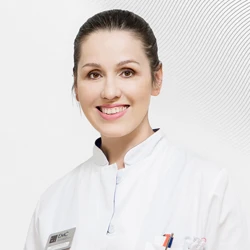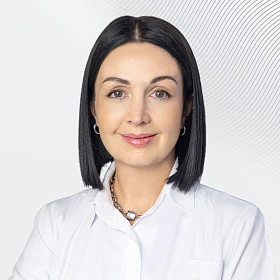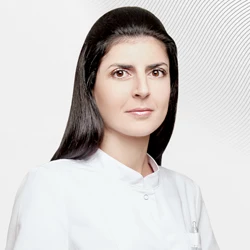Irina Vasilyeva, Head of the EMC Mammology Center, answered questions on the topic of mastopathy.
What is mastopathy? What is its danger to women's health?
In my opinion, the term "mastopathy" is somewhat outdated. Previously, any pathology of the breast was called mastopathy. And still every second woman is sure that mastopathy is a diagnosis, which, of course, is not correct.
In fact, this concept hides a set of symptoms that bother a woman. It can be breast swelling, discomfort, soreness in the mammary glands and in the axillary areas in the middle of the menstrual cycle and before menstruation. From a medical point of view, this condition is more correctly called mastodynia – breast tenderness. And so we deal with these symptoms and find their cause.
What is the reason for the soreness and discomfort in the mammary glands?
There are many possible reasons. For example, the density of the mammary glands, which seems pathological to a woman, is associated with the anatomical features of the structure of the breast. Sometimes soreness is caused by fluctuations in hormones during the menstrual cycle. Chest pain may not be related to the mammary glands at all, but, for example, to the condition of the spine. In the presence of degenerative changes in the cervical or thoracic spine, a woman may feel pain or discomfort in the mammary glands, since the nerve endings penetrate the entire thickness of the chest and, of course, capture the mammary gland. To determine the cause of the pain, consult a doctor and undergo an appropriate examination.
What studies are prescribed for a woman who is worried about chest pain and discomfort?
The choice of the research method depends on the age. If a woman is over 40 years old, she undergoes screening mammography. Screening is a study that detects a disease before the onset of clinical manifestations. If necessary, it is assigned MRI or ultrasound of the mammary glands. Ultrasound examination is performed for women under 40 years of age. If there are implants, we suggest MRI because it is the most accurate method of breast diagnosis in women with breast implants. Examination and medical history collection is also important, as it allows you to establish a family predisposition to breast cancer.
Is breast tenderness and engorgement being treated?
If, with a properly selected study, we did not find a pathology of the mammary glands, then most likely the symptoms are related to hormonal changes. In this case, it would not be superfluous to check the female hormones. We often prescribe a hormonal spectrum study on the second day of the menstrual cycle, adding a thyroid hormone study, and we get a picture that is significant for making a diagnosis and prescribing treatment. In the presence of hormonal disorders, the patient is referred to an endocrinologist and a gynecologist. Treatment may include the appointment of nonsteroidal anti–inflammatory drugs, if necessary, hormonal drugs, usually topical drugs.
Is Mastopathy, or more precisely, the complex of symptoms that lies behind this concept, associated with the risk of breast cancer?
This is a common opinion, but it is wrong. Patients come to our office who have been told that they are at risk for breast cancer because they have been diagnosed with mastopathy.
Unfortunately, any woman can get breast cancer, which is why it is so important to get screened on time. There are studied and proven risk factors for breast cancer, which include, for example, early menstruation, late menopause, late childbirth and their absence, the presence of female relatives with breast cancer in the family, BRCA1 and BRCA2 gene mutations, harmful environmental factors, and overweight. Mastopathy or breast injuries, contrary to popular belief, do not affect the risk of developing breast cancer.
If cysts or fibroadenomas are found in the breast, do I need to remove them?
Indeed, an imbalance of hormones in a woman's body often leads to benign changes, including the development of fibroadenomas or cysts. If a neoplasm is detected, it is necessary first of all to determine its goodness by conducting a biopsy and subsequent histological examination of a tissue sample in a pathological laboratory. If fibroadenomas do not change the shape of the breast, you can live with them safely and not remove them, because they do not degenerate into breast cancer. Everywhere in our practical work, we come across recommendations to remove fibroadenomas, but we do not agree with this, and we try to explain our position to women. Of course, if a woman insists on having it removed because she is afraid and it is difficult to convince her, we will perform the operation, because in this case it is more important to preserve her mental health.
Is it possible to identify breast problems on your own?
Doctors have mixed attitudes towards self-examinations. I believe that self-examination of the breast is acceptable, but only as an additional precautionary measure. Once a month, you go to the mirror and examine the mammary glands: assess the condition of the skin, whether there is redness, thickening, discharge from the nipple. But self-examination is by no means a substitute for a visit to a mammologist and an annual screening examination. Because the visible symptoms often indicate a common form of the disease. This means that the moment has been missed - the woman did not come to the doctor on time or she was not properly diagnosed.
We recommend that women be aware of their risk factors and undergo mandatory screening – this is the most effective method of early diagnosis that will help preserve their health and sometimes save their lives.
Was this information helpful?
Questions and answers
Ask a Question









.webp)

